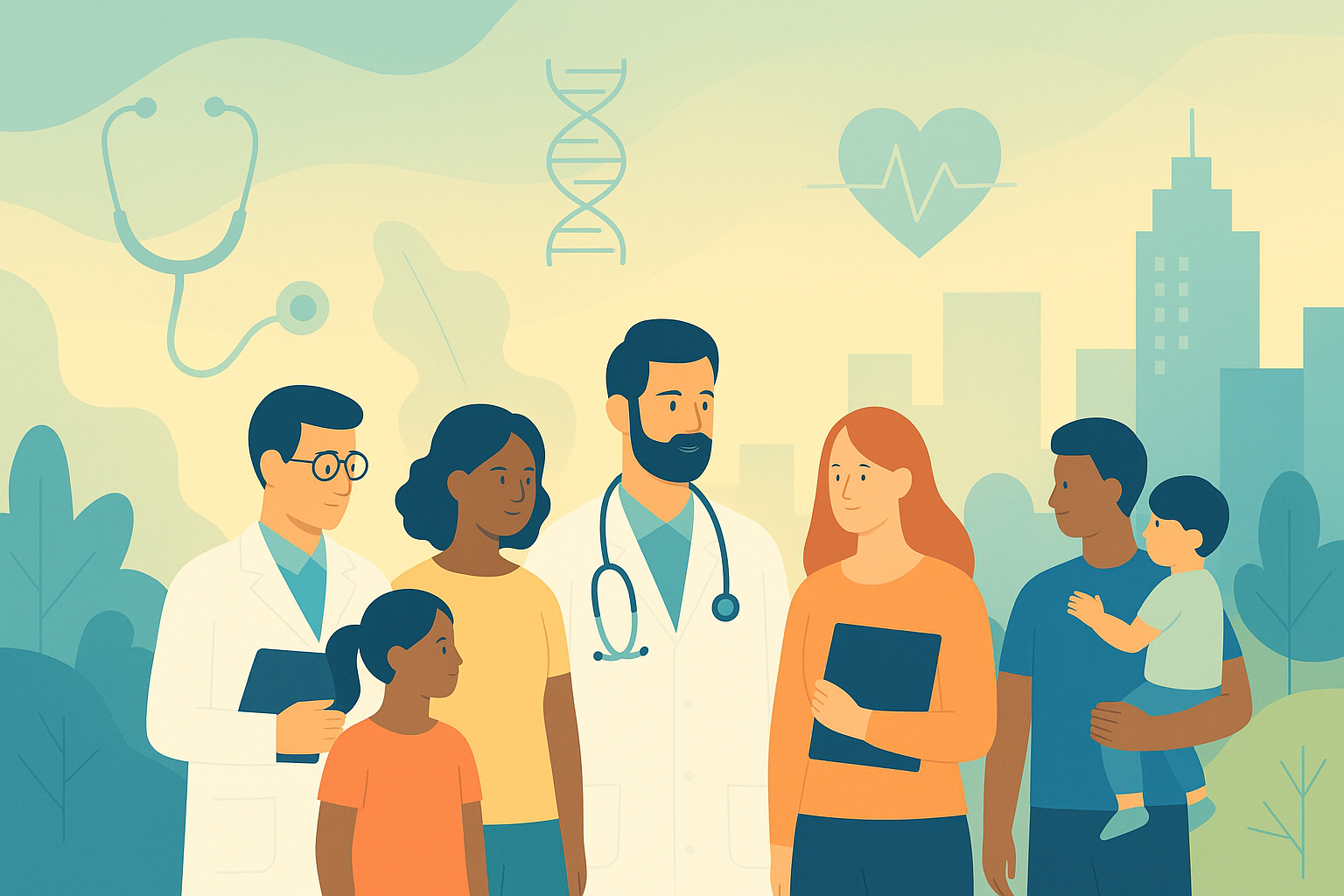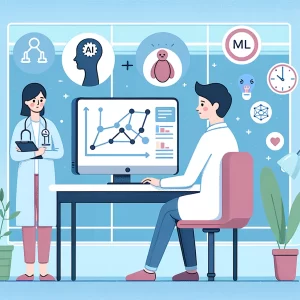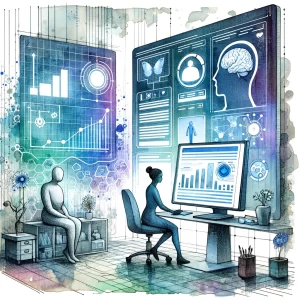
Generative AI in Healthcare: A Double-Edged Sword
In recent years, generative artificial intelligence (GenAI) has taken the world by storm, and its applications in healthcare have both fascinated and alarmed researchers, practitioners, and ethicists alike. From tools like ChatGPT generating human-like text to AI synthesizing medical images, the potential benefits seem endless. But as with any powerful tool, the rapid rise of GenAI has sparked debates about its ethical use, particularly in high-stakes settings like healthcare.
A recent scoping review explored the ethical conversations surrounding GenAI in healthcare, uncovering key gaps in research and providing practical solutions to guide its future development.
GenAI: A New Frontier in Healthcare
Generative AI is different from traditional AI because it doesn’t just analyze data; it creates content—like text, images, or even videos—based on patterns it learns. While GenAI tools like ChatGPT are now household names, their capabilities are being tested in fields like mental health support, breast cancer diagnostics, and dietary care. The potential applications in healthcare are immense, but this raises critical ethical questions.
When you think of AI creating patient treatment plans, diagnosing diseases, or synthesizing medical research, it’s easy to see the high stakes. Accuracy and privacy are not just technical challenges; they can be matters of life and death. However, the ethical concerns surrounding GenAI go beyond accuracy—they touch on privacy, autonomy, fairness, and trust.
The Ethical Landscape: What We Know (and Don’t Know)
The review, which analyzed 193 articles, found that most discussions about GenAI focus on large language models (LLMs) like ChatGPT, which generate text-based content. While this is important, it leaves other forms of GenAI, like those generating medical images or structured data, underexplored.
For instance, while many papers raised concerns about GenAI’s potential to mislead or make harmful mistakes (non-maleficence), few offered concrete solutions. Even fewer discussed how GenAI could uphold patient autonomy, ensuring individuals remain in control of their healthcare decisions. This gap is particularly troubling when you consider the enormous impact GenAI can have on the patient experience.
One area where GenAI is making strides is in solving privacy issues. Researchers have used AI to generate synthetic data—realistic but artificial copies of patient data—that can be used for research without exposing sensitive information. This sounds promising, but here’s the catch: synthetic data can still be biased, potentially leading to inaccurate or unfair outcomes in real-world scenarios. If the AI is trained on biased data, it might perpetuate those biases when generating synthetic datasets.
The Checklist Solution: TREGAI
To tackle these issues, the researchers behind the scoping review developed a tool they hope will become a standard in healthcare AI research—the Transparent Reporting of Ethics for Generative AI (TREGAI) checklist. The idea is to provide a concrete framework for ethical assessment. By using the checklist, researchers, peer reviewers, and healthcare institutions can ensure they’re systematically evaluating the ethical aspects of their AI projects.
The checklist is designed to cover nine key ethical principles:
- Accountability – Who is responsible when something goes wrong?
- Autonomy – Does the AI respect patients’ rights to make informed decisions?
- Equity – Is the AI promoting fairness or deepening inequalities? (important!)
- Integrity – Are the AI’s outputs honest and transparent?
- Non-maleficence – Is it doing more good than harm?
- Privacy – Is patient data being adequately protected?
- Security – Are there safeguards against data breaches?
- Transparency – Are the AI’s methods clear and explainable?
- Trust – Can users and patients trust the system?
While the checklist is not a cure-all, it provides a much-needed starting point for addressing the ethical complexities of using GenAI in healthcare. The authors of the review argue that the TREGAI checklist can be integrated into peer review systems, institutional boards, and even product development processes. This way, ethical considerations won’t be an afterthought but a core part of the design and implementation process.
GenAI Beyond Text: The Missing Pieces
Interestingly, the review found that while large language models like ChatGPT get a lot of attention, other GenAI methods, such as those used to generate medical images or structure complex data, are often left out of ethical discussions. Yet, these forms of AI are just as capable of causing harm if not used responsibly.
For example, generative adversarial networks (GANs)—a type of GenAI—can be used to create fake medical images for research purposes. While this helps protect patient privacy, it also opens the door for misuse. Imagine someone fabricating medical evidence for fraudulent insurance claims. The ethical challenges are real, and the current research doesn’t fully address them.
Another area that deserves more attention is multimodal GenAI—AI that integrates text, images, and structured data simultaneously. While still in its infancy, this technology could revolutionize healthcare, allowing doctors to analyze complex patient data more holistically. However, with increased complexity comes increased ethical risk. Who is responsible if a multimodal GenAI tool makes a wrong diagnosis? How do we ensure transparency in such a black-box system?
Looking Forward: Ethical AI in Healthcare
The rapid development of GenAI in healthcare is both exciting and daunting. On one hand, AI has the potential to revolutionize patient care by making it more personalized, efficient, and accessible. On the other, these benefits can only be realized if ethical concerns are addressed head-on.
The TREGAI checklist is an important first step, but more research is clearly needed—particularly in areas like multimodal GenAI and bias in synthetic data. Moreover, regulators, researchers, and healthcare practitioners must collaborate to create guidelines that not only address current challenges but anticipate future ones.
Join the Conversation
As we stand on the brink of a new era in healthcare, how do you think GenAI can best be used to promote equity and fairness? What ethical concerns worry you most about the rise of AI in healthcare? Share your thoughts in the comments or on social media using the hashtag #EthicalGenAI.
Join the Community – Get Your Weekly Public Health Update!
Be a health leader! Subscribe for free and share this blog to shape the future of public health together. If you liked this blog, please share it! Your referrals help This Week in Public Health reach new readers.



